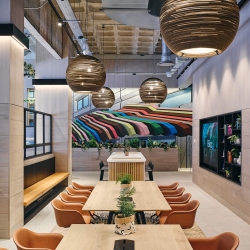June 28, 2022
Is change your friend or your enemy?
 Is change your friend or your enemy? If you are a young person leaving home for the first time and are excited about the prospects of striking out on your own – change is most likely your friend. But if you are the parent, watching your child leave the nest, and your close protection, then change could very possibly be your enemy. The same is true when it comes to introducing new ways of working in an organisation. Some people will like the ‘old ways’ because they are familiar and comfortable – they are like second nature and hence don’t take any real thinking. Whereas for others, the ‘new way’ may be quite faster, easier or simply exciting because it is different. (more…)
Is change your friend or your enemy? If you are a young person leaving home for the first time and are excited about the prospects of striking out on your own – change is most likely your friend. But if you are the parent, watching your child leave the nest, and your close protection, then change could very possibly be your enemy. The same is true when it comes to introducing new ways of working in an organisation. Some people will like the ‘old ways’ because they are familiar and comfortable – they are like second nature and hence don’t take any real thinking. Whereas for others, the ‘new way’ may be quite faster, easier or simply exciting because it is different. (more…)













 People struggle to express themselves authentically at work because they feel a need to conform to the tenets of the workplace culture, Dame Inga Beale, the former and first female CEO of Lloyd’s of London, told ESCP Business School.
People struggle to express themselves authentically at work because they feel a need to conform to the tenets of the workplace culture, Dame Inga Beale, the former and first female CEO of Lloyd’s of London, told ESCP Business School. 



















June 29, 2022
Workplace green flags to look out for
by Samantha Losey • Comment, Wellbeing